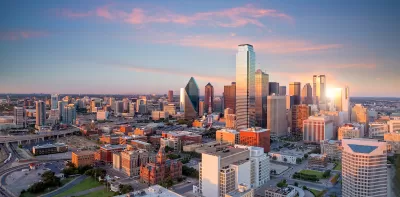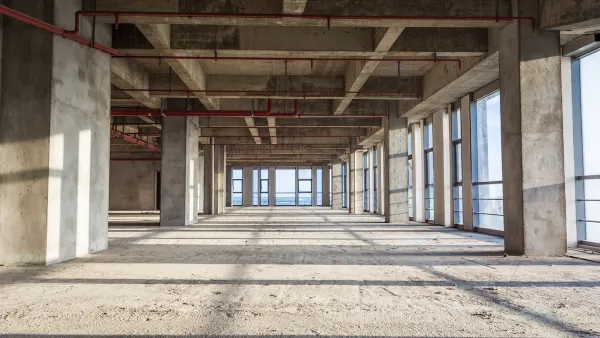The rise in office vacancies is fueling a boom in adaptive reuse projects.

In a guest article in D Magazine, Jason Weeks describes several major adaptive reuse projects making headway in Dallas. “As D CEO reported last year, downtown Dallas has seen about 20,000 multifamily units added in the past 25 years. That trend continues, and the growth will be in part due to office towers being redeveloped.”
As Weeks explains, “a building’s structure and skin are among a construction project’s highest costs, often accounting for a third of a project’s construction budget. Adaptive reuse projects help mitigate, or even eliminate, this expense, depending on the condition of existing elements and the changes a developer opts to make.”
Additionally, Weeks writes, existing buildings provide a safer workplace for construction workers and reduce delays caused by weather. Office buildings offer higher ceilings, more elevators, and other features that give architects more flexibility in repurposing the space.
FULL STORY: Three Benefits of Adaptive Reuse Projects

Maui's Vacation Rental Debate Turns Ugly
Verbal attacks, misinformation campaigns and fistfights plague a high-stakes debate to convert thousands of vacation rentals into long-term housing.

Planetizen Federal Action Tracker
A weekly monitor of how Trump’s orders and actions are impacting planners and planning in America.

Chicago’s Ghost Rails
Just beneath the surface of the modern city lie the remnants of its expansive early 20th-century streetcar system.

Bend, Oregon Zoning Reforms Prioritize Small-Scale Housing
The city altered its zoning code to allow multi-family housing and eliminated parking mandates citywide.

Amtrak Cutting Jobs, Funding to High-Speed Rail
The agency plans to cut 10 percent of its workforce and has confirmed it will not fund new high-speed rail projects.

LA Denies Basic Services to Unhoused Residents
The city has repeatedly failed to respond to requests for trash pickup at encampment sites, and eliminated a program that provided mobile showers and toilets.
Urban Design for Planners 1: Software Tools
This six-course series explores essential urban design concepts using open source software and equips planners with the tools they need to participate fully in the urban design process.
Planning for Universal Design
Learn the tools for implementing Universal Design in planning regulations.
planning NEXT
Appalachian Highlands Housing Partners
Mpact (founded as Rail~Volution)
City of Camden Redevelopment Agency
City of Astoria
City of Portland
City of Laramie





























